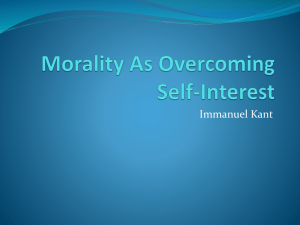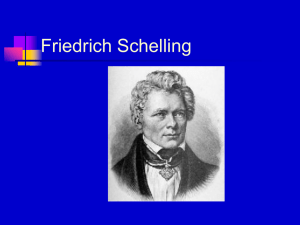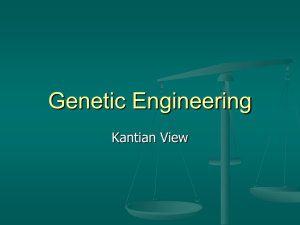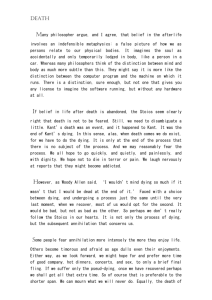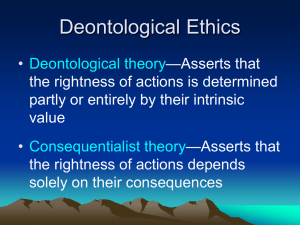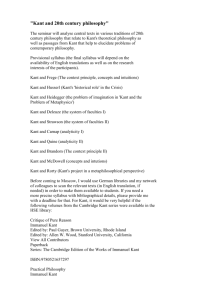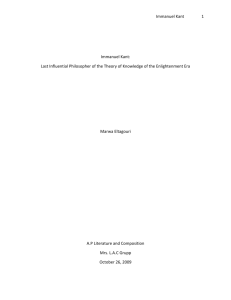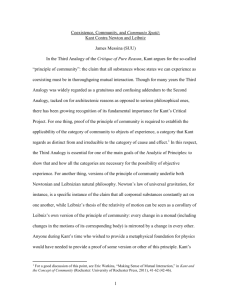kant cites
advertisement
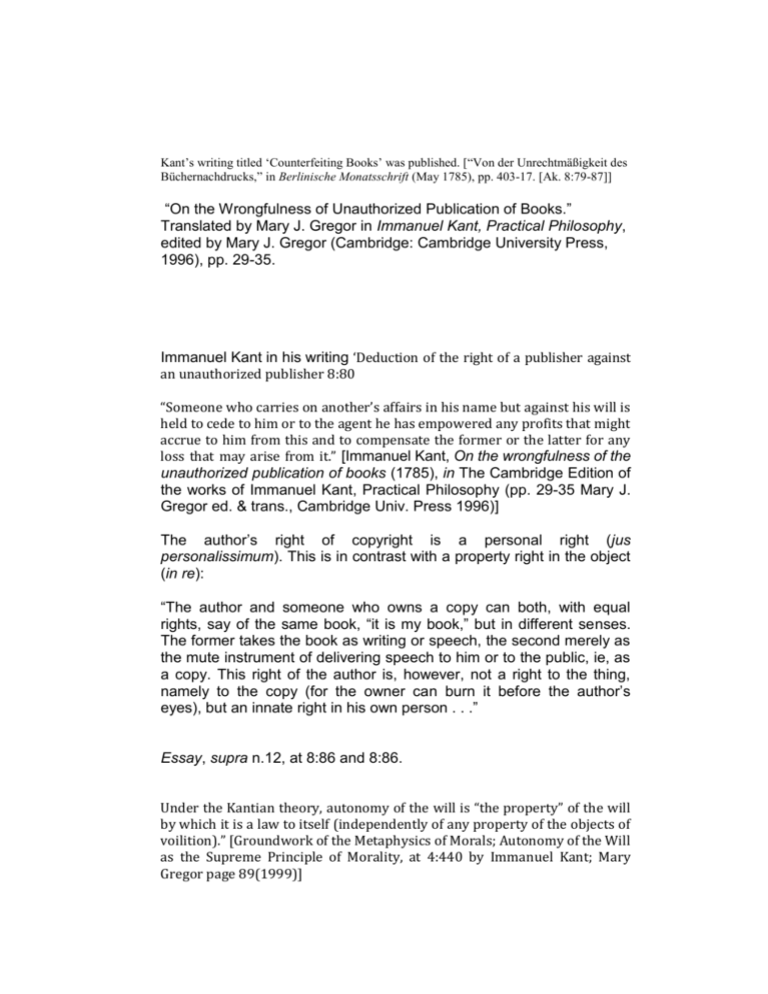
Kant’s writing titled ‘Counterfeiting Books’ was published. [“Von der Unrechtmäßigkeit des Büchernachdrucks,” in Berlinische Monatsschrift (May 1785), pp. 403-17. [Ak. 8:79-87]] “On the Wrongfulness of Unauthorized Publication of Books.” Translated by Mary J. Gregor in Immanuel Kant, Practical Philosophy, edited by Mary J. Gregor (Cambridge: Cambridge University Press, 1996), pp. 29-35. Immanuel Kant in his writing ‘Deduction of the right of a publisher against an unauthorized publisher 8:80 “Someone who carries on another’s affairs in his name but against his will is held to cede to him or to the agent he has empowered any profits that might accrue to him from this and to compensate the former or the latter for any loss that may arise from it.” [Immanuel Kant, On the wrongfulness of the unauthorized publication of books (1785), in The Cambridge Edition of the works of Immanuel Kant, Practical Philosophy (pp. 29-35 Mary J. Gregor ed. & trans., Cambridge Univ. Press 1996)] The author’s right of copyright is a personal right (jus personalissimum). This is in contrast with a property right in the object (in re): “The author and someone who owns a copy can both, with equal rights, say of the same book, “it is my book,” but in different senses. The former takes the book as writing or speech, the second merely as the mute instrument of delivering speech to him or to the public, ie, as a copy. This right of the author is, however, not a right to the thing, namely to the copy (for the owner can burn it before the author’s eyes), but an innate right in his own person . . .” Essay, supra n.12, at 8:86 and 8:86. Under the Kantian theory, autonomy of the will is “the property” of the will by which it is a law to itself (independently of any property of the objects of voilition).” [Groundwork of the Metaphysics of Morals; Autonomy of the Will as the Supreme Principle of Morality, at 4:440 by Immanuel Kant; Mary Gregor page 89(1999)] 29-35 “O_n_ _t_h_e_ _w_r_o_n_g_f_u_l_n_e_s_s_ _o_f_ _u_n_a_u_t_h_o_r_i_z_e_d_ _p_u_b_l_i_c_a_t_i_o_n_ _o_f_ _b_o_o_k_s_”, Deduction of the right of a publisher against an unauthorized publisher 8:80 “Someone who carries on another’s affairs in his name but against his will is held to cede to him or to the agent he has empowered any profits that might accrue to him from this and to compensate the former or the latter for any loss that may arise from it.” it is to be noted that currently, much of the scholarly commentary on Kant and copyright associates Kant with personality theories.26 10 See Edward Damich, The Right of Personality: A Common Law Basis for the Protection of the Moral Rights of Authors, 23 GA.L. Rev. 1, 26-27 (1988); Russell J. DaSilva, Droit Moral and the Amoral Copyright: A Comparison of Artist’s Rights in France and the United States, 28 BULL. COPYRIGHT SOC’Y 1, 910 (1980); Roberta Rosenthal Kwall, “Author-Stories:” Narrative’s Implications for Moral Rights and Copyright’s Joint Authorship Doctrine, 75 S. CAL. L. REV. 1, 19 (2001); Tom G. Palmer, Are Patents and Copyright Morally Justified? The Philosophy of Property Rights and Ideal Objects, 13 HARV. J.L. & PUB. POL’Y 817, 848 (1990); Dan Rosen, Artists’ Moral Rights: A European Evolution, an American Revolution, 2 CARDOZO ARTS & ENT. L.J. 155, 157 (1983); SIMON STOKES, ART AND COPYRIGHT 16 (Hart Pub. 2001); J.A.L. STERLING, WORLD COPYRIGHT LAW 43 (Sweet and Maxwell 1999); Cheryl Swack, Safeguarding Artistic Creation and the Cultural Heritage: A Comparison of Droit Moral Between France and the United States, 22 COLUM.-VLA J.L. & ARTS 361, 370-71 (1998); Stina Teilmann, Framing the Law: The Right of Integrity in Britain, 27(1) EUR. INTELL. PROP. REV (2005) It is a (universal) individuality for Kant that constitutes genius in art. Kant uses the terms “individuality” and “originality” together.32 Individuality, and not the imprint of personality, animates genius.33 IMMANUEL KANT, CRITIQUE OF THE POWER OF JUDGMENT 5:318 (Paul Guyer ed. & trans., Eric Matthews trans., Cambridge Univ. Press 2000) [hereinafter CRITIQUE OF JUDGMENT]. 33 Id. at 5:313; see also discussion of the Kantian concept of genius infra pages 1080-1081. Francis Hargrave, counsel in Donaldson v. Becket: “[A] literary work really original, like the human face will always have some singularities, some lines, some features, to characterize it . . . .”53 Francis Hargrave, An Argument in Defence of Literary Property (2d. edn. London, 1774), 35-6, as reprinted in BRAD SHERMAN AND LIONEL BENTLY, THE MAKING OF MODERN INTELLECTUAL PROPERTY LAW: THE BRITISH EXPERIENCE 1760-1911, at 52 (Cambridge Univ. Press 1999); also reprinted in Rose, supra note 52, at 48. At the Rome Conference on the Berne Convention for the Protection of Literary and Artistic Works, a work was said to have “a character representative of the personality of the author.”59 Berne Convention for the Protection of Literary and Artistic Works, S. T REATY DOC. NO. 27 (1986). 1801 Kant publishes a brief notice Against Vollmer “Nachricht an das Publicum, die bey Vollmer erschienene unrechtmäßige Ausgabe der physischen Geographie von Imm. Kant betreffend” in Allgemeine Literatur-Zeitung, Intelligenzblatt, #120, col. 968 (24 June 1801). [Ak 12:372] “Public Notice regarding the Illegitimate Edition, published by Vollmer, of Imm. Kant’s Physical Geography.” This brief notice was directed against an unauthorized publication of Kant’s physical geography lectures, based on (allegedly) three sets of student notes in Vollmer’s possession. http://www.manchester.edu/kant/Helps/Writings.htm



